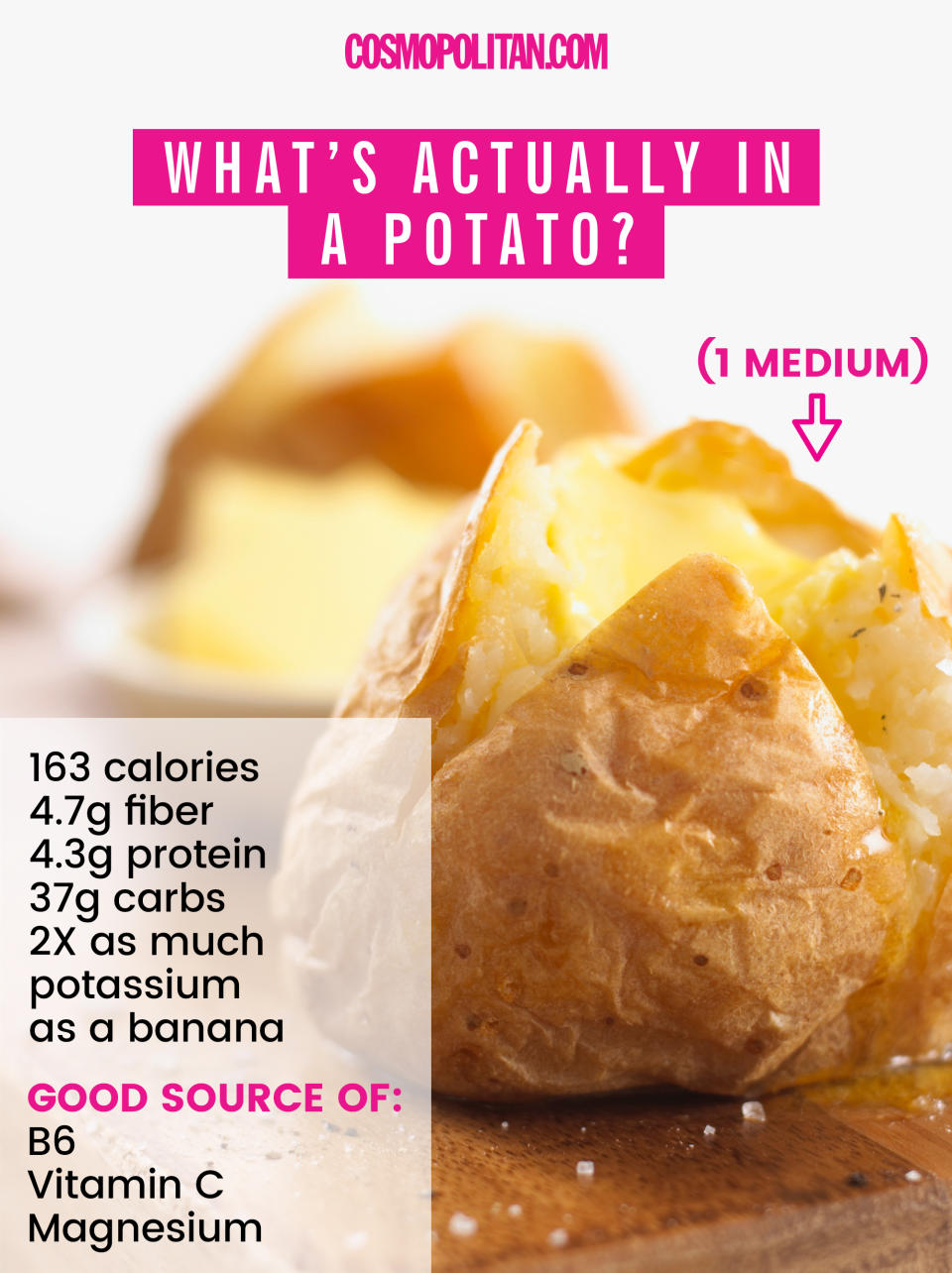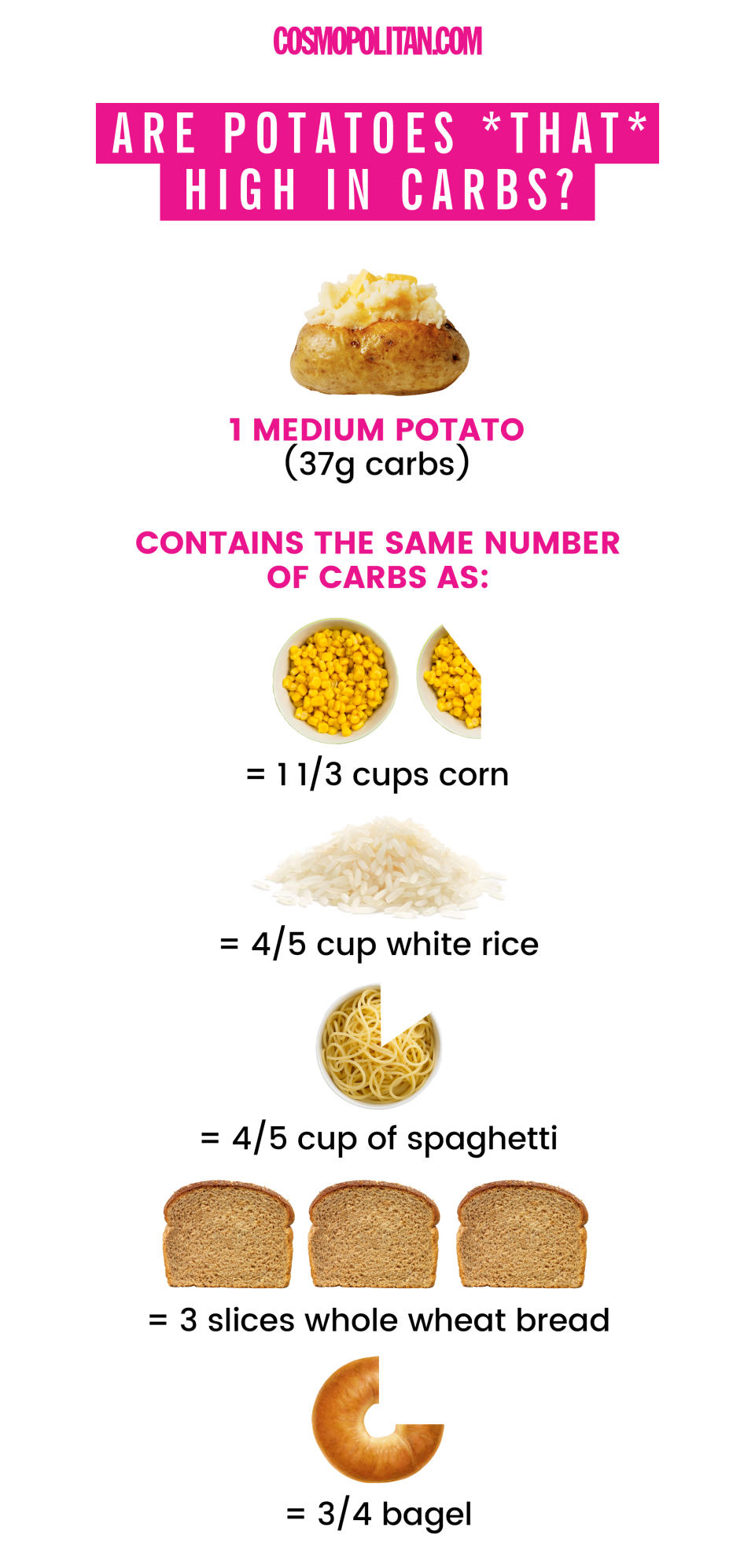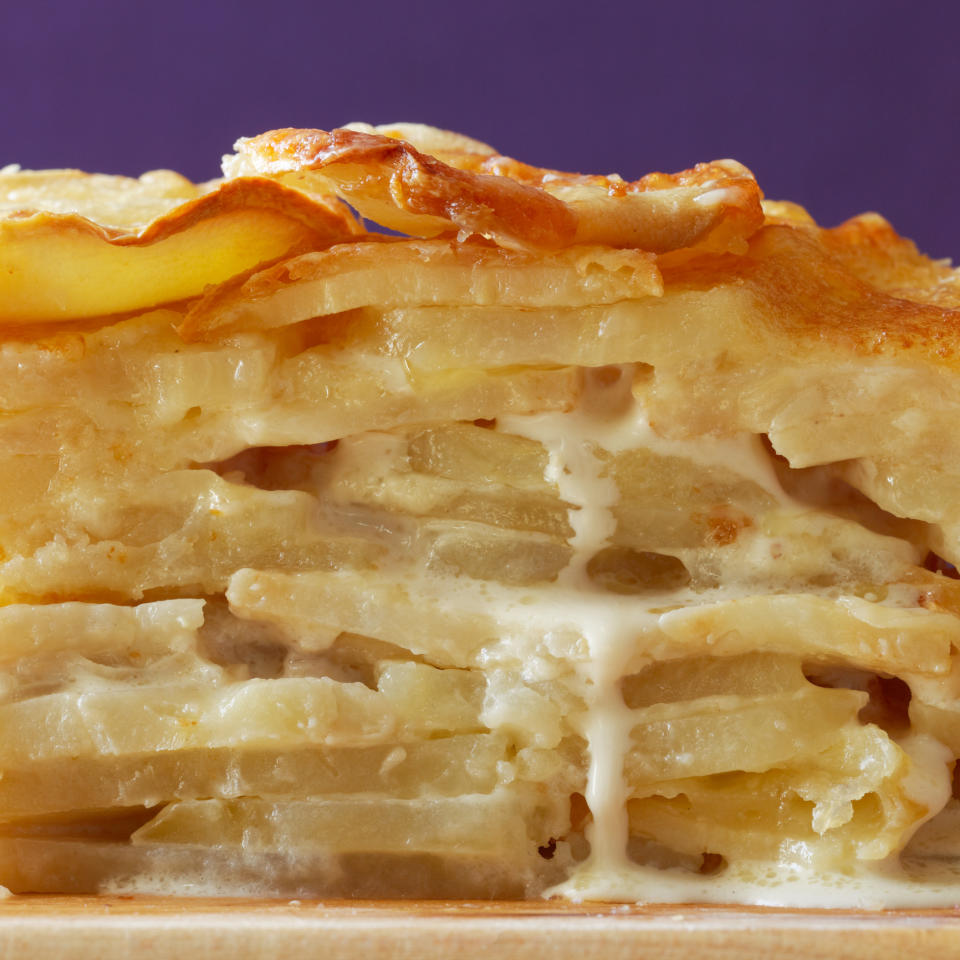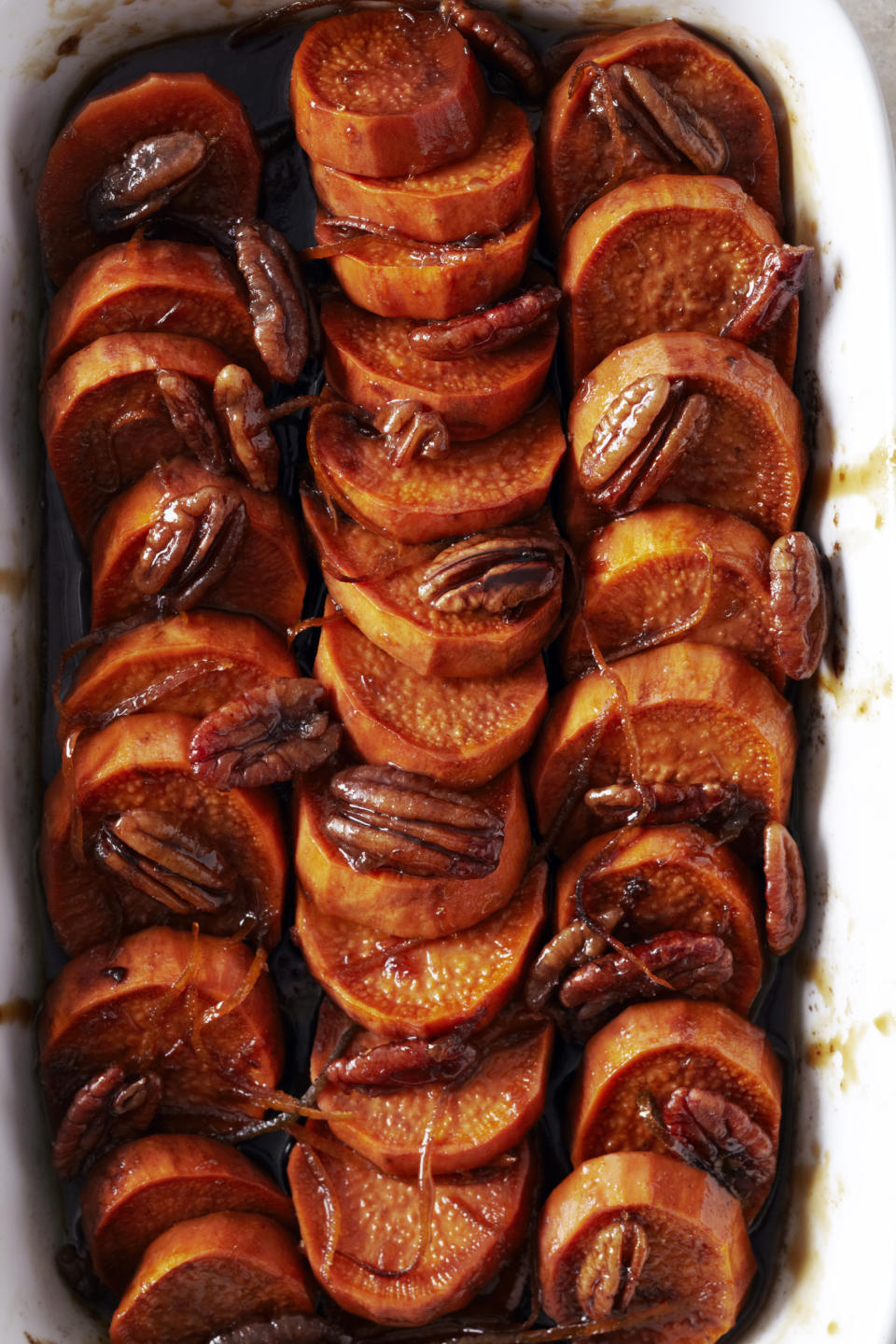Are Potatoes That Bad for You?

Potatoes have been vilified by dieters for what feels like forever - but whether it's home fries with brunch, chips with your sandwich, or fries with your burger, it takes a whole lot of willpower to steer clear of the starchy staple.
To stop food guilt from ruining potato-based dishes - particularly around the holidays, when potatoes comprise so many of the best seasonal sides - Cosmopolitan.com dug around to see whether potatoes are that bad for you. Here's the deal:
It's true that potatoes can spike your blood sugar, but that's not the whole story.
The root of the potato's bad reputation can be traced to the glycemic index, a tool nutrition experts use to ruin all delicious things compare one quality among different foods: how quickly they're broken down into sugars and dumped into the blood stream. When foods are broken down especially quickly - I see you, potatoes! - the body responds by releasing insulin to sop up all the sugar.
The problem, according to Adrienne Youdim, MD, founder of the Center for Weight Loss and Nutrition at Lasky Clinic in Beverly Hills, California, is that this leaves you high and dry on energy, and prone to cravings and hunger - even though you literally just ate. It's a hangry cycle that can make it tough to manage your weight.
Although potatoes eaten alone tend to be digested relatively quickly, so many other factors figure into the digestive process, like serving size, how a food is prepared, what foods accompany said potatoes down the hatch, and whether you started your day with brunch fit for a queen or haven't eaten in hours. In other words, the whole glycemic index thing doesn't end up meaning very much for the average person.
"Potatoes raise the blood sugar as they should to provide for our energy," says John McDougall, MD, a physician and founder of the McDougall Program, author of The Starch Solution. But because humans eat for energy, he argues, that's not necessarily a bad thing.
There are much worse things you can eat than plain old potatoes.
Even though colorful foods tend to be more celebrated for their nutritional density, white potatoes still provide you with filling fiber, a bit of protein, and plenty of nutrients to boot:

And just because potatoes contain high-glycemic index carbohydrates doesn't mean they're unhealthy, according to Dr. McDougall. Actually, it's shortsighted to assess a food based on a single quality, like the fact that it's relatively high in carbs.

The way people eat potatoes really ruins potatoes' reputation.

When you deep-fry potatoes, stuff them with cheese, eat them in the form of chips, mash them with loads of butter and cream, or smother them with ketchup and other condiments, you end up adding significant amounts of saturated fat and sugar.

"No one eats french fries by themselves, and it adds up," Dr. Youdim warns - but that's no reason to blame the potatoes themselves. Considering how much people hate on processed foods and harp on clean eating, you certainly can't fault the potato for being overprocessed.
The real problem with potatoes is eating them in large portions.
Dr. McDougall likes to point out that hundreds of millions of people have lived on starchy vegetables for years. And chances are you've heard of the potato diet - the one where you eat nothing but unlimited amounts of potatoes and still manage to lose excess weight and maintain pretty perfect health. (Because a varied diet helps you get the best mix of nutrients and beat food boredom that can lead to binging, most experts don't recommend this.)

But there's a difference between people who rely on starch as their main source of nutrition and the rest of us, who treat starch as side dishes that just so happen to accompany a burger, omelet, or steak. We eat a lot more and move a lot less than people of yesteryear, so our starch and energy needs are probably much lower, says Dr. Youdim. She recommends sticking to 2- to 3-ounce potato servings, which is amounts to about half a medium potato (or a small order of fast food fries, if you must).
Some starches are superior to white potatoes.
At the end of the day, potatoes are roughly comparable to white rice, nutritionally - and only slightly better for you than white bread, according to Dr. Youdim. Yams and sweet potatoes get extra credit for serving up loads of vitamin A.

When it comes to other starchy veggies, squashes get a leg up for their colorful mix of nutrients and higher water content, which means they contain fewer calories per bite than potatoes. Carrots and peas also offer up lots of nutrients with a slower blood sugar spike - and it helps that peas and carrots aren't typically deep-fried, whipped with cream and butter, or sweetened and baked as a pie. (But again, the way your body reacts to any food depends on many factors.)
In terms of non-vegetable starches, legumes contain just enough protein to tap the breaks on the whole sugar conversion process and deliver more sustainable energy, according to Dr. Youdim, who's also a fan of whole grains and sprouted, grainy breads, which can sometimes outshine potatoes too. That said, given the choice, she'd recommend barley, quinoa, chickpeas, or lentils over potatoes.
The Bottom Line
No one is saying potatoes are the devil - or that you should eat them at every single meal. There's nothing wrong with eating baked, roasted, or boiled potatoes a few times a week - or springing for a bag or chips or reasonably sized order of fries because you feel like it. Just realize that fried potatoes are very different from (and less healthy than) the innocent potato that you started with, and sugary condiments don't make things any better. Also know that more colorful options like squash will deliver extra nutrients when you're craving something starchy, while whole grains and legumes (or potatoes paired with protein) are likely to give you a more even-keeled flow of energy than a lone potato.
Follow Elizabeth on Twitter and Instagram.
You Might Also Like

